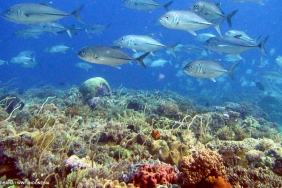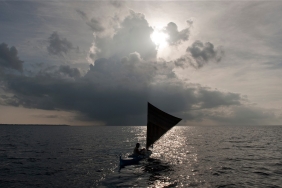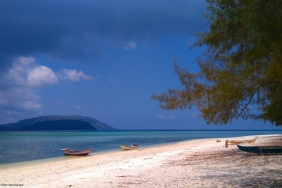PUTTING THE PUZZLE TOGETHER FOR SUSTAINABLE EEL FISHERIES IN INDONESIA
The increasing demand for fishery products that are clear in origin, environmentally friendly and accountable is one of the focuses in improving current management, both in terms of capture fisheries and aquaculture. This demand actually arises from global seafood consumers who are more concerned about the sustainability of fisheries stocks in nature, especially for export commodities. Not limited to some favorite commodities such as tuna and shrimp, the increasing awareness of seafood sustainability is also happening to consumers of processed eel fish.
The unique and challenging nature of eel fisheries requires intensive coordination with several parties involved in this fishery activity, ranging from government, fishing actors to industry. Challenges are spread from upstream to downstream, like a puzzle that needs to be organized into a series. This work is certainly not easy and requires effective coordination between parties.
Based on this background, WWF-Indonesia together with partners conducted a meeting with stakeholders in sustainable eel fisheries management in Indonesia on April 29, 2019. This meeting was attended by: 1) Representatives of the Ministry of Maritime Affairs and Fisheries (KKP), KKHL Section, DJPB, Pusriskan, BRPPUPP, 2) Indonesian Institute of Sciences/LIPI, 3) Bogor Agricultural University/IPB, 4) eel cultivation industry players PT Iroha Sidat Indonesia and PT Labas, 5) FAO Indonesia and 6) representatives from WWF Japan, and Chuo University.
The meeting discussed the latest development of fisheries improvement implementation both in terms of fishing (Fisheries Improvement Project/FIP)and also aquaculture (Aquaculture Improvement Project/AIP) by Achmad Mustofa and Nur Ahyani from WWF-Indonesia. A heated discussion emerged in this fisheries improvement discussion which indeed requires joint work to answer the existing challenges, such as data collection and implementation of research as management recommendations including stock analysis and impacts on habitat-ecosystems, recording and development of traceability systems, improving the quality of fishermen's catch of glass eel for better survival rate values, identifying natural congenital diseases from nature and drafting appropriate regulations to effective management institutions.
The lack of data on eel fisheries is not only experienced by Indonesia, but also countries in Europe that are doing the same thing to prevent eel resources from being included in Appendix I of CITES, which means that there should be no utilization activities except for conservation purposes. For Indonesia, the data collected can support the condition of Non-Detriment Findings (NDF) although not perfect but at least there is.
"In line with habitat-ecosystem conditions, in addition to fishing activities, pressure on eel populations is also due to declining environmental quality. This is a common challenge and inter-ministerial coordination is needed, this can be started with the internal policies of the Ministry of Marine Affairs and Fisheries. Therefore, the synergy of all stakeholders needs to be built as it relates to the management of eel migration routes," added Mr. Ateng Supriatna, FAO Indonesia.
Currently the government through the Ministry of Marine Affairs and Fisheries, and recommendations from LIPI are finalizing limited regulations to maintain recruitment and protect broodstock, namely: a) protection of eel species Anguilla bicolor and Anguilla interioris in the form of a prohibition of fishing minimum size of 2 kg and above: b) protection of eel species Anguilla marmorata and Anguilla celebensis in the form of a minimum size of 5 kg and above; and c) protection of eels (Anguilla spp) in the form of a ban on catching glass eel for two days every dark month on 27 & 28 Hijri in Indonesia for all species Anguilla spp.
.
"This activity is very relevant to the program of the Ministry of Marine Affairs and Fisheries, together with the Fish Resources Team, let us focus on improving the management of eel fisheries. It is hoped that after this, related to the discussion of eel, we hope that Indonesia will emerge as a leading country related to eel, because the potential is large and the opportunity is quite wide open," said Mr. M. Firdaus Agung, Ph.D, KKHL-KKP while closing the activity.
Broadly speaking, the process of building the puzzle of improving eel fisheries in Indonesia is still in its early stages, so coordination and cooperation are needed for a better process going forward. These positives serve as a foundation to progress to a more advanced stage towards sustainable eel fisheries resources.





